Children are Fed with Volunteer Assistance in Grateful Communities
Ending hunger is one of the 17 U.N. Sustainable Development Goals (SDG). Global Volunteers offers four essential services in partner communities in Ecuador, Peru, and Tanzania, toward reaching this SDG. Read on to learn how short-term volunteers help support child nutrition so youth can reach their full potential.
Adequate child nutrition ensures healthier bodies and minds. When combined with proper hygiene, infectious disease prevention, and enhanced education, families and communities are healthier. Many parents living in developing countries strive to provide their children adequate nutrition but lack the resources. Global Volunteers works with community programs that help ensure children have nutritious meals, despite their circumstances.
The diets in developing communities are based mainly on a staple crop like rice, corn, wheat, potato, and beans, allowing even the poorest to feed themselves. In Andean countries like Ecuador and Peru, potatoes are the most widely available crop and the main ingredient for most dishes. Potatoes are great to combat hunger because they are filling and are a source of carbohydrates, vitamin C, B6, iron, and potassium. But they’re not adequate for child nutrition on their own. Potatoes do not have all the needed vitamins and minerals and must be supplemented with other macro and micronutrients. However, fresh meat, fruits, and vegetables can be beyond a family’s budget. So, the most impoverished children in these communities are often filled with potatoes, but little else. They’re undernourished because they lack sufficient micro-and macro-nutrients in their diets.
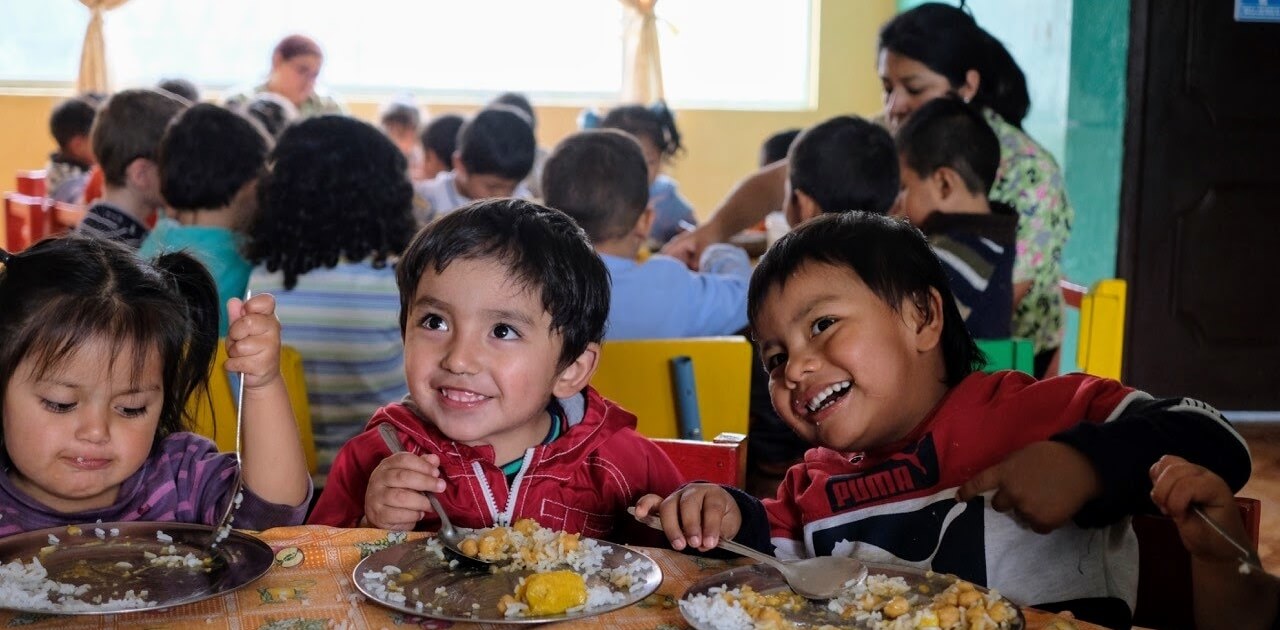
The Challenge of Child Nutrition in the Developing World
Undernourished children may not appear unhealthy, and that’s why the condition can continue for years. But a poor diet has its long-term consequences. According to the latest data by the Ecuadorian National Institute of Statistics and Census (INEC), 20.1% of children in the Pichincha province are stunted. (This is where Global Volunteers works with our partner FUNDAC). Similarly, the Peruvian National Institute of Statistics and Informatics (INEI), reports that in Ventanilla, where we work with our partner Sagrada Familia, 26.8% of children suffer anemia. Both partners serve the most vulnerable children from the most impoverished surrounding areas.
In Ecuador, FUNDAC (the Foundation of Ladies of Calderón), with the help of the Ecuadorian government, maintains a feeding program at the early childhood development centers they run. Children who attend preschool are fed four times daily at these centers. The meals include breakfast, fruit at midmorning, lunch (soup, segundo, and juice), and a smoothie (colada) and something solid an hour before leaving the center. The food is nutritious, and the children are encouraged to eat all of it. Pilar Guzmán, FUNDAC Treasurer, explains the importance of these meals: “FUNDAC was created to protect families in vulnerable situations, with children being the most important. The nutrition provided is balanced in exact portions according to the age of the children and is distributed under the supervision of the teachers. The nutrition must be balanced in order to avoid children from becoming sick or anemic because in their homes, they do not have sufficient financial resources to acquire the necessary food for adequate nutrition.”
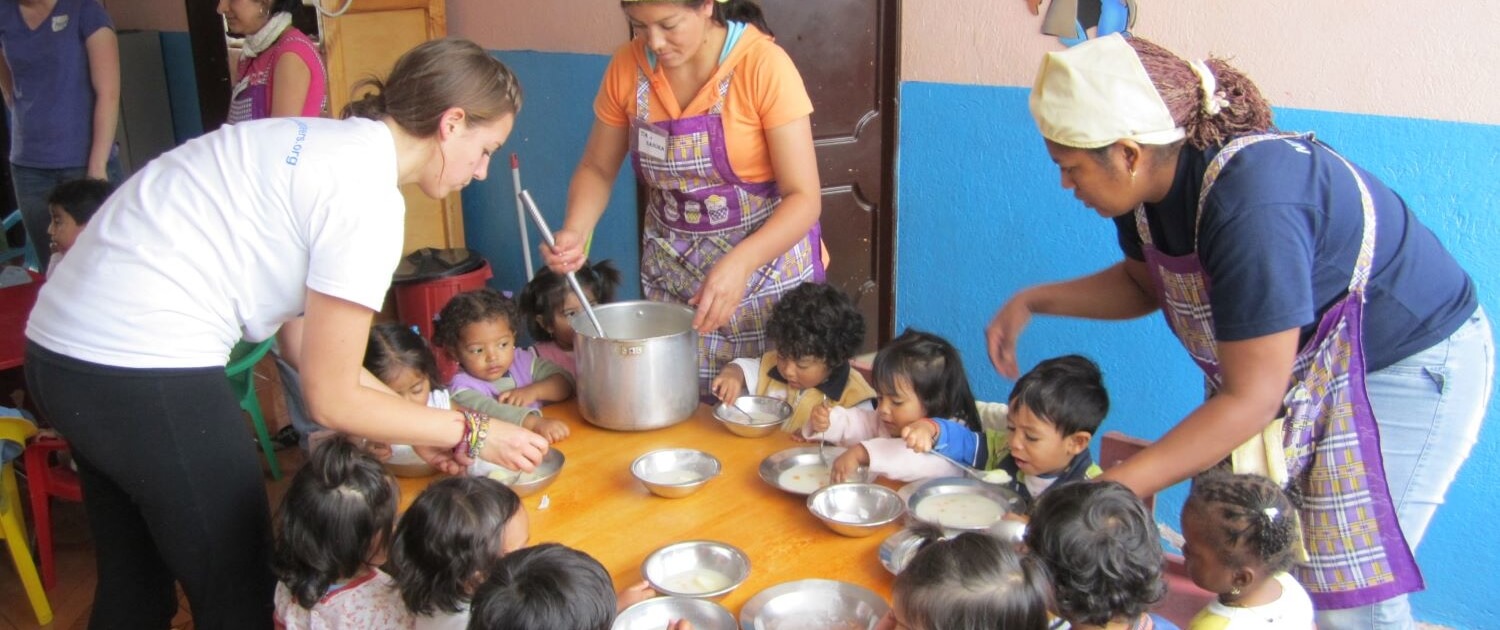
Global Volunteers team members serving in Ecuador help center staff serve meals and feed the children. Thanks to volunteers’ donations, Global Volunteers also provides nutritional supplements.
“The meals served at the centers are very important since the children’s growth and adequate development of their cognitive capacity depend on their proper nutrition,” says Pilar. “Global Volunteers helps us with vitamins and necessary nutritional supplements to compliment the meals served daily so that we can have healthy children as well as motivate the little ones to consume nutritious foods.”
In Ventanilla, Peru, children aren’t so fortunate. The government doesn’t provide funding or food for our partner, Sagrada Familia. The community feeds its 250 resident children and 1,300 children who attend daily school (while it’s in session). So Miguel Rodríguez, founder and director of Sagrada Familia, dedicates income from his book publishing business, small contributions from some of the children’s families, and donations to the best child nutrition he can afford. Some local markets, supermarkets, and restaurants donate surplus food close to expiration. The usual lunch (the main meal for Peruvians) is rice and potatoes with a smaller portion of vegetables and meat, if available.
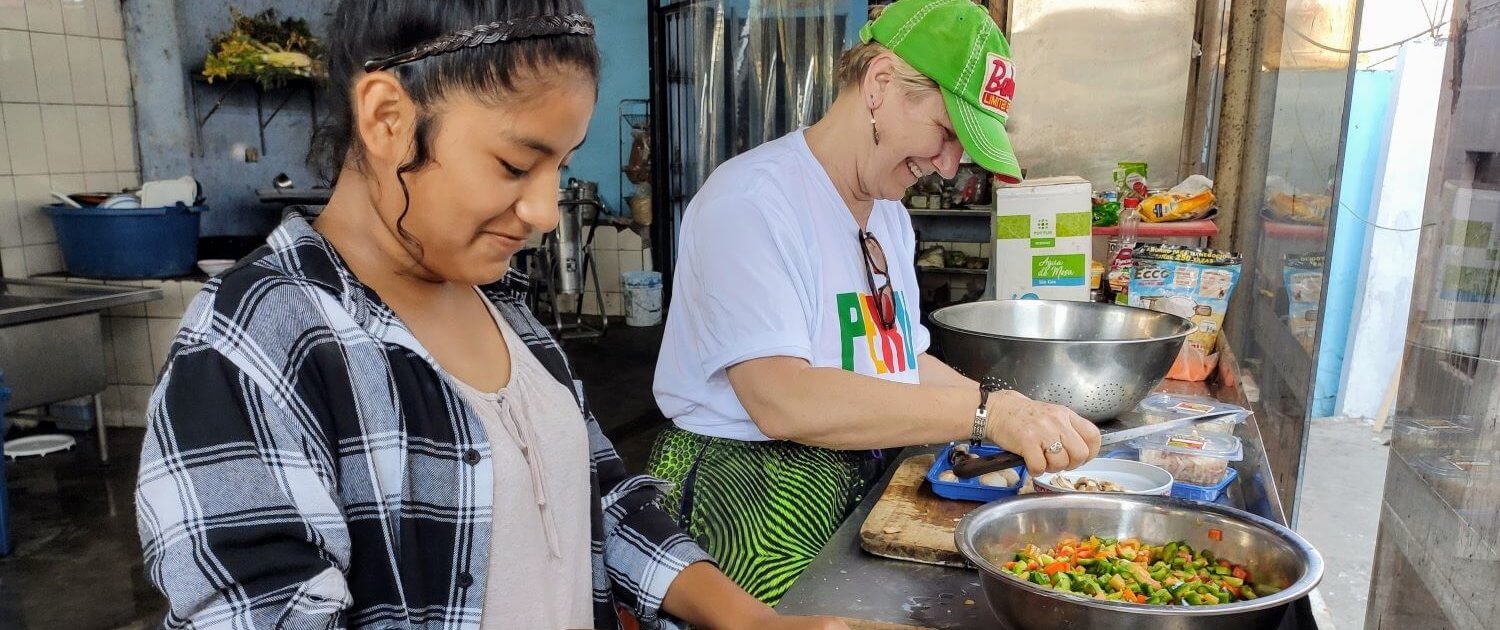
Volunteer Gail Kulick and Rosita chop vegetables 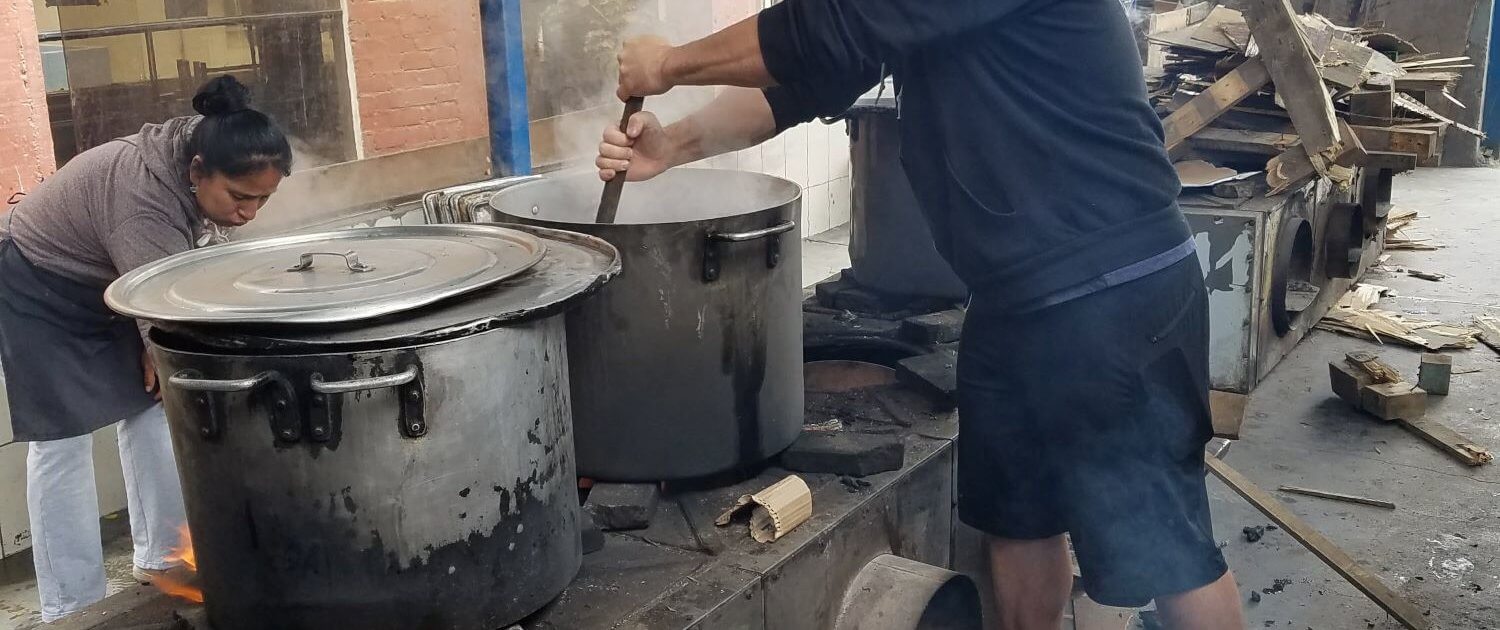
Volunteer Casey Brooksby stirs pots over wood stove 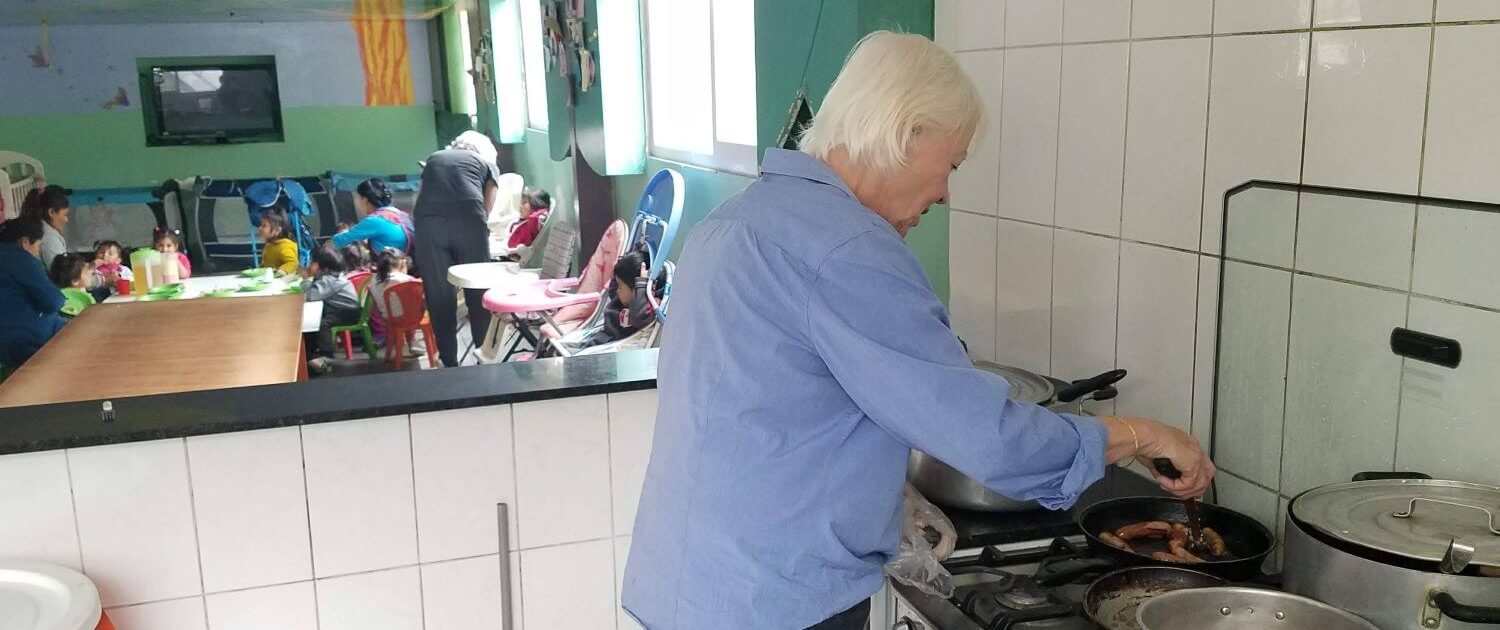
Volunteer Kathryn Griffith cooks lunch for the toddlers 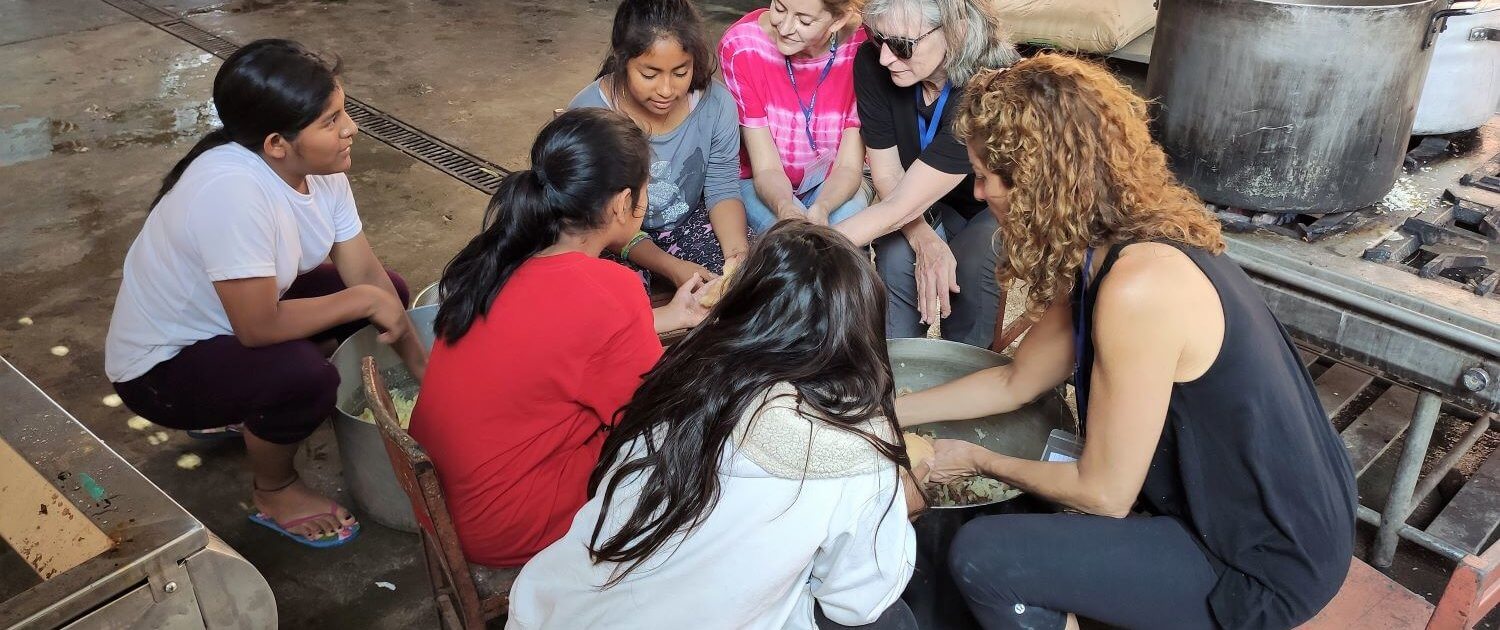
Volunteers work at the kitchen with some Sagrada Familia girls
Three Parts of Child Nutrition in Tanzania
Supplying child nutrition through Global Volunteers’ Reaching Children’s Potential Program (RCP) in Tanzania is a three-step process. Volunteers teach nutrition workshops, provide fortified porridge with micronutrients, and distribute container gardens and chicken coops to village families. RCP is a child-focused, parent-driven, family-centered, and community-led comprehensive approach to eradicate hunger, improve health, and enhance cognition. The program begins with pregnancy and continues through the 18th birthday centering around pregnant women, mothers, infants, and toddlers. The lessons taught at parent workshops and in schools are reinforced through home visits, where local staff follow each family’s progress, help them adopt hygiene and food production technologies, and encourage them to keep working towards a healthy lifestyle. Supporting good nutrition is a foundational service in assisting children to reach their full potential in Tanzania.
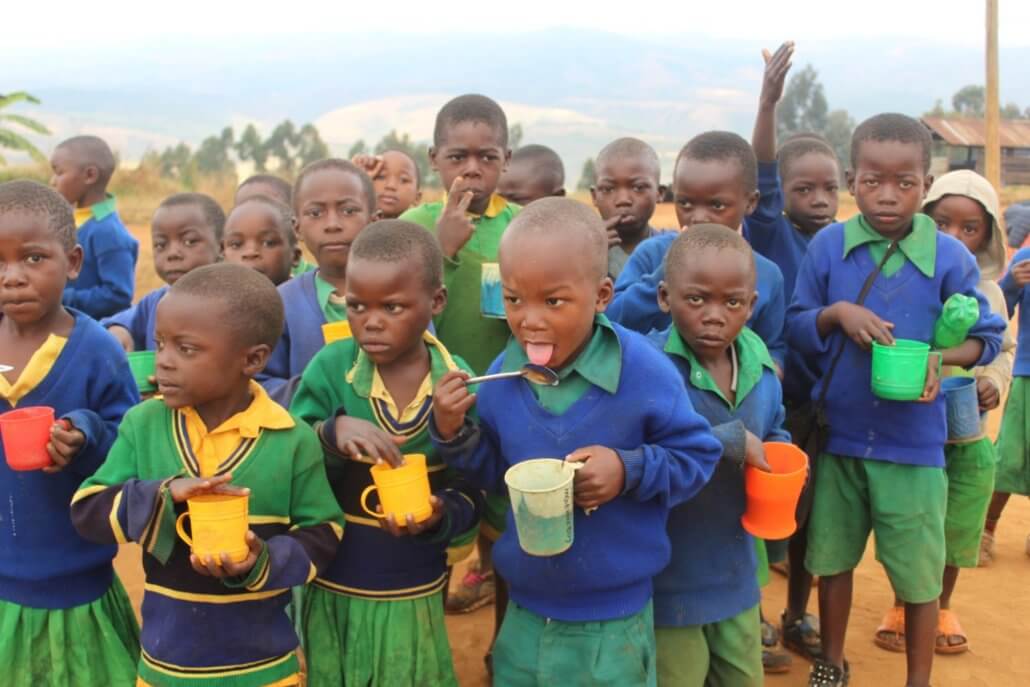
Fortified meals are given to students and families 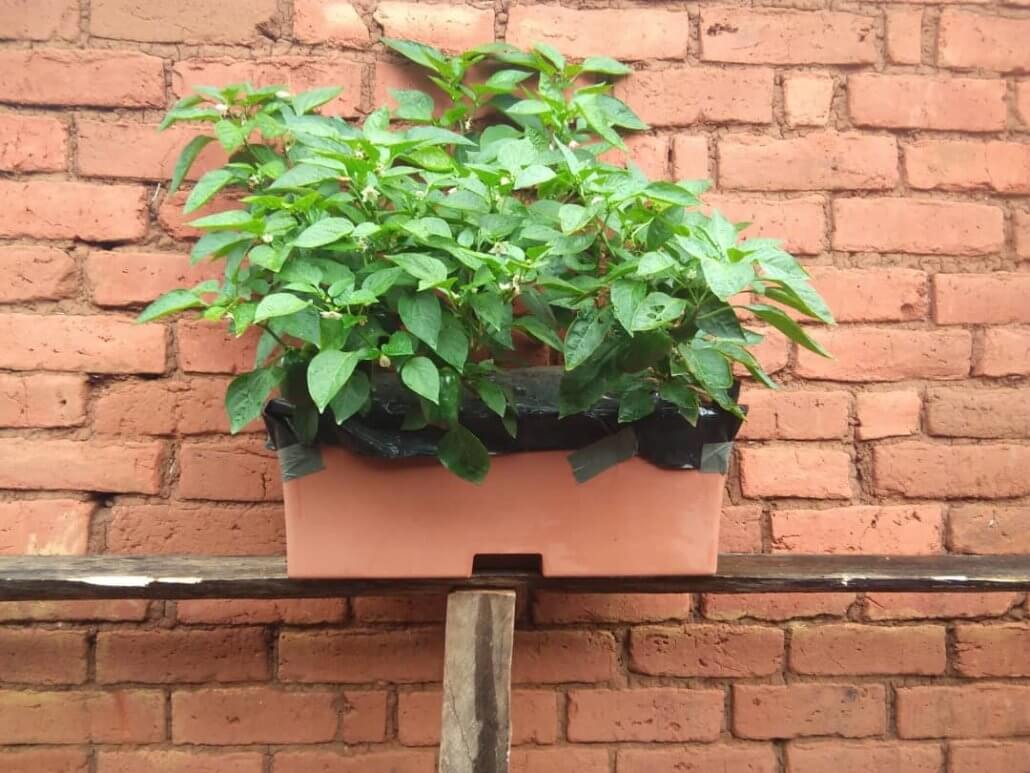
EarthBoxes are supplied to families and schools 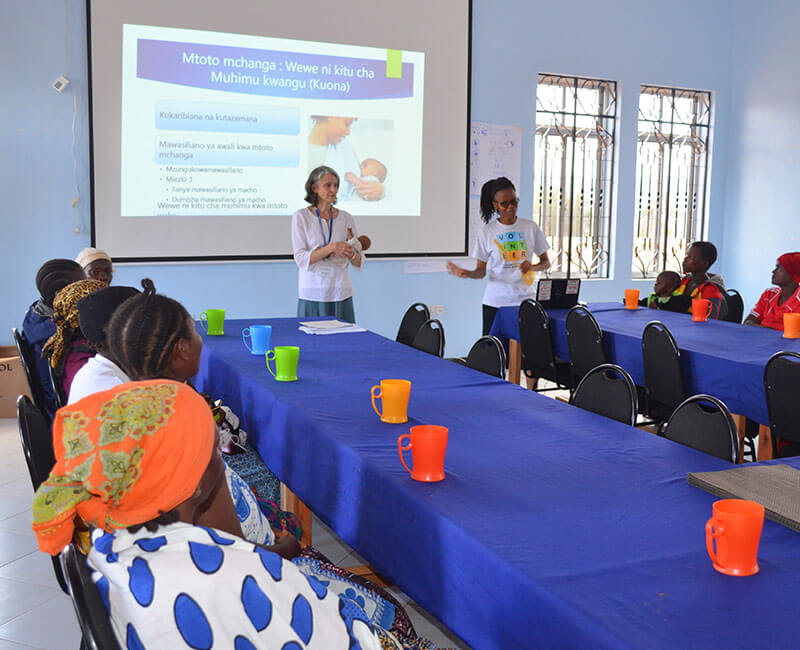
Workshops are conducted for parents
A Meal is More Than a Bowl of Rice or Beans
Global Volunteers contributes to child nutrition at Sagrada Familia in Peru through generous lunch payments for volunteers who serve each day and donations of food and kitchen supplies and utensils. Volunteers raised funds for a large-scale kitchen renovation. We also help prepare and serve meals and encourage the children to finish eating their food. Several times during service programs, lack of cooks or hands in the kitchen is remedied by volunteers’ able assistance.
Miguel believes food provides more than nutrition for the body. Child nutrition, he says, is a means of feeding hearts and souls. “It’s deeper than sharing the food; it is preparing it, it is preparing it with the greatest possible pleasure. Despite not being used to cooking it for so many children and doing so in firewood stoves, as in times of four centuries ago, volunteers enter to work as equals. It is so good to make food from the heart, which is what volunteers do. We still remember their smiles.”
“Volunteers enter to work as equals. It is so good to make food from the heart, which is what volunteers do. The simple sharing of a meal feeds not only stomachs but also souls.”
Miguel Rodríguez
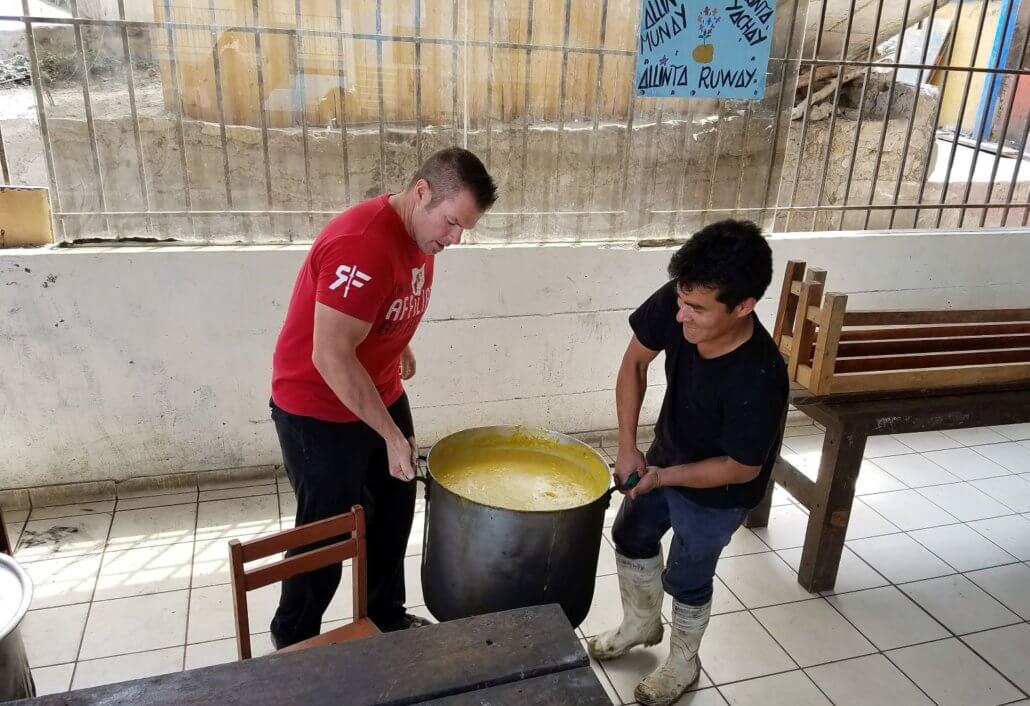
Huge pots of food require muscles to move 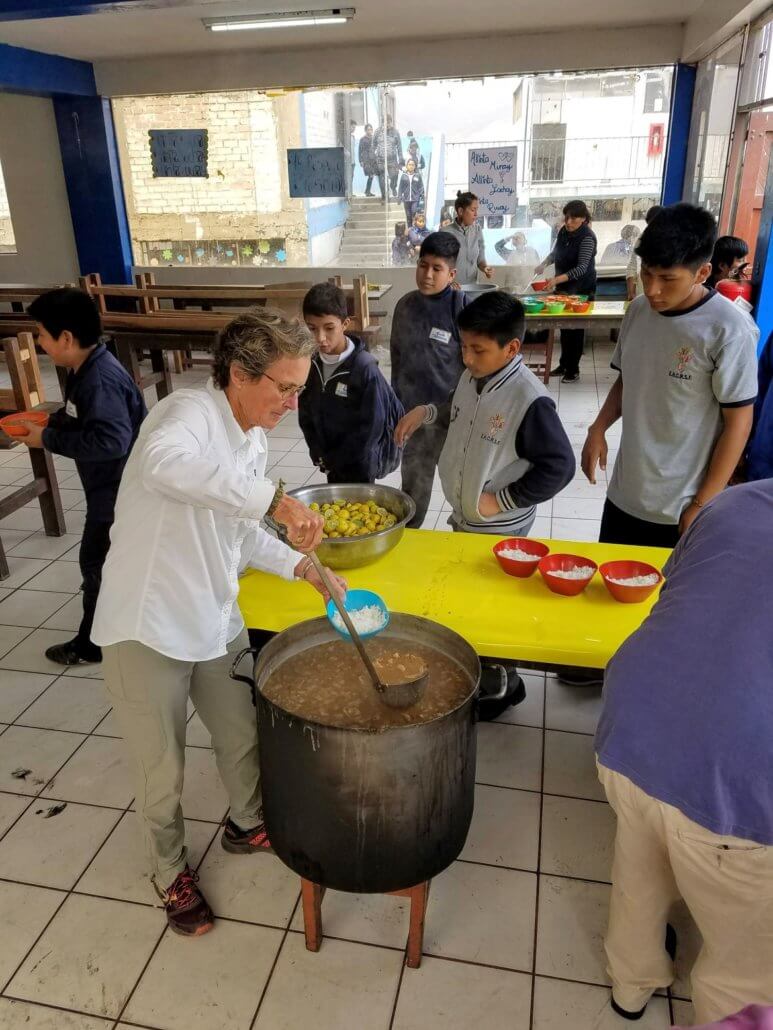
Volunteers help fill bowls with rice and lentils 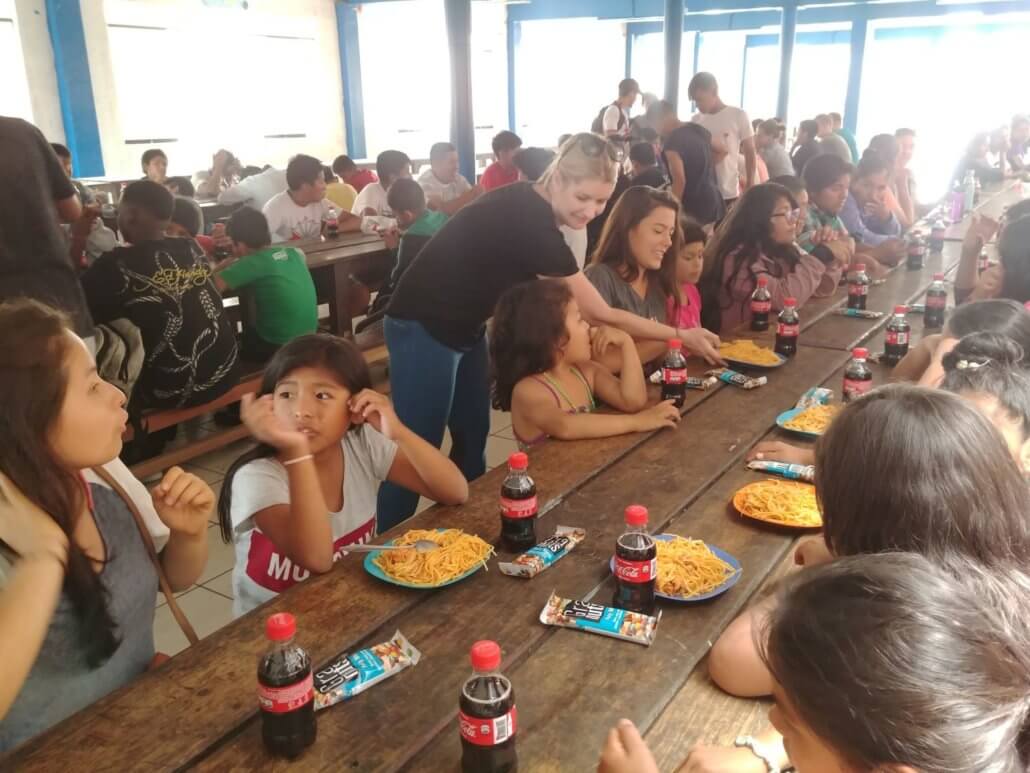
Serving lunch is rapid-fire assignment 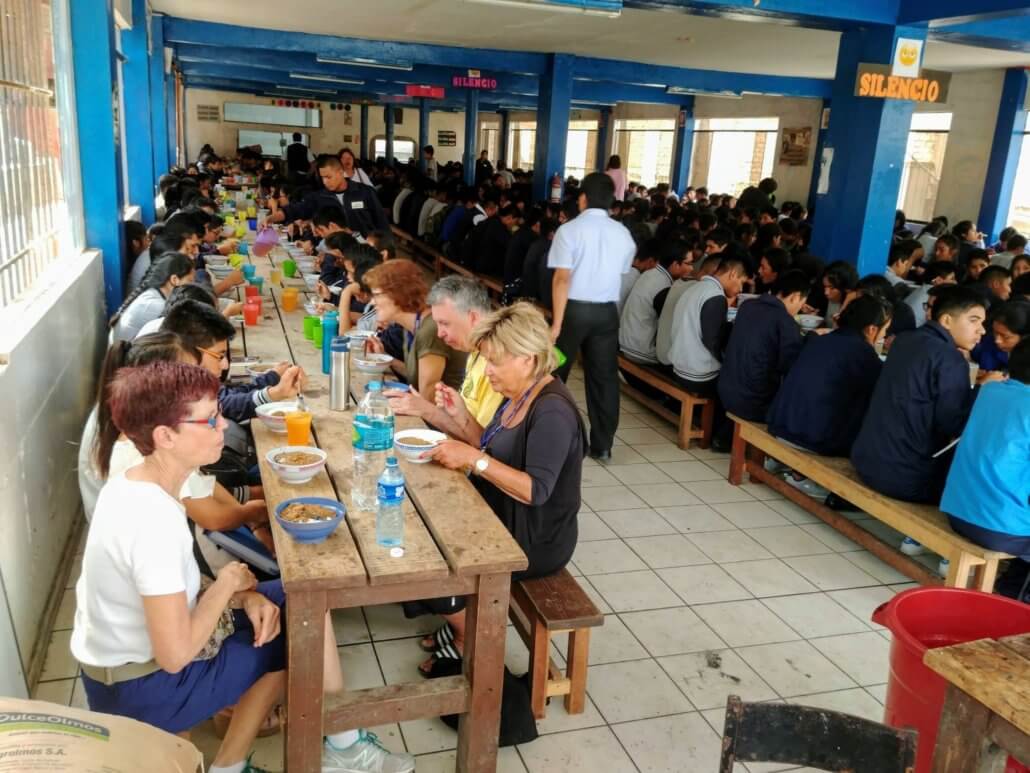
Volunteers share lunch with 1,300 students 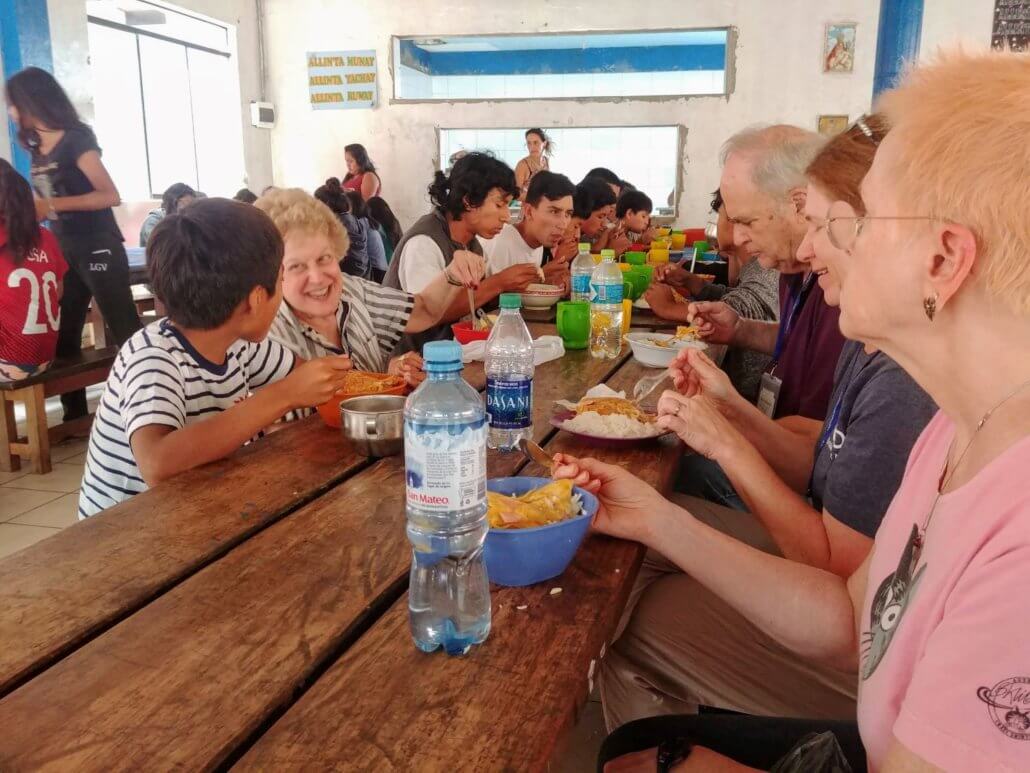
Volunteers and children learn about each other 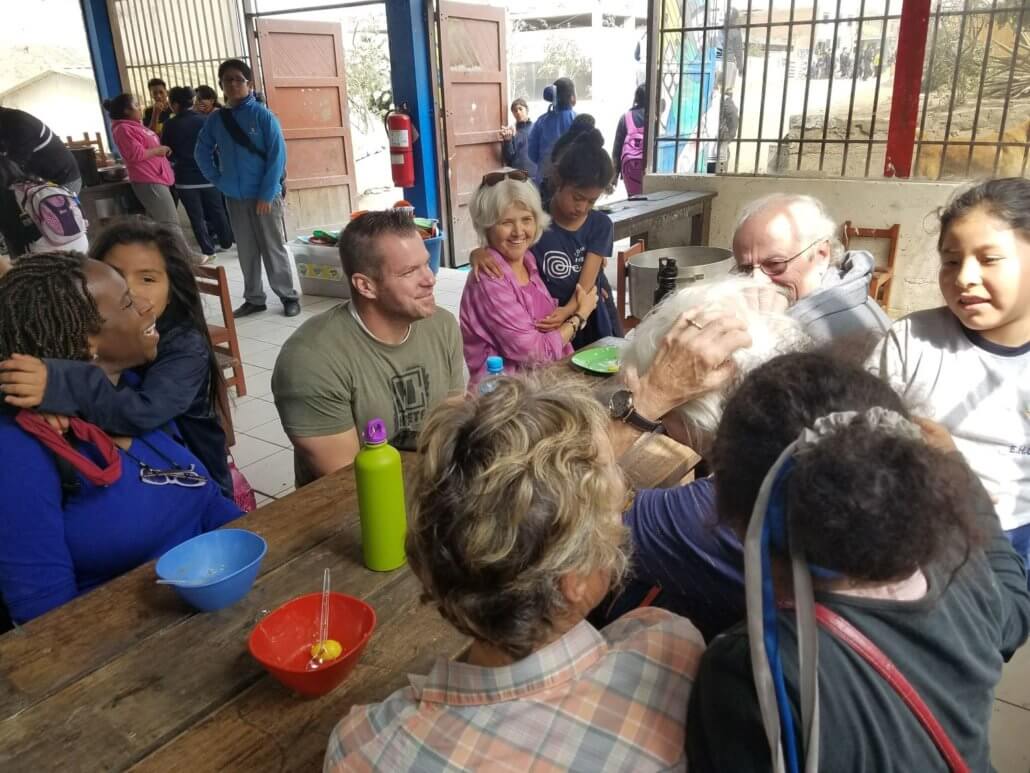
Child nutrition is an essential service
Finally, and perhaps most importantly, feeding children in partner communities engages volunteers in basic care and compassion. “By sitting among them at their tables, eating the same food, and sharing their lives with them during meals, we emphasize our equality and solidarity,” says Miguel. In a society that marginalizes these children because of their race, ethnicity, economic status, or family situation, this contribution cannot be overstated. The simple sharing of a meal feeds not only stomachs but also souls. Global Volunteers’ goal extends far beyond rice and beans, but to accomplish Miguel’s vision – to demonstrate our common humanity, and feed children’s opportunities to thrive.
You may also like:

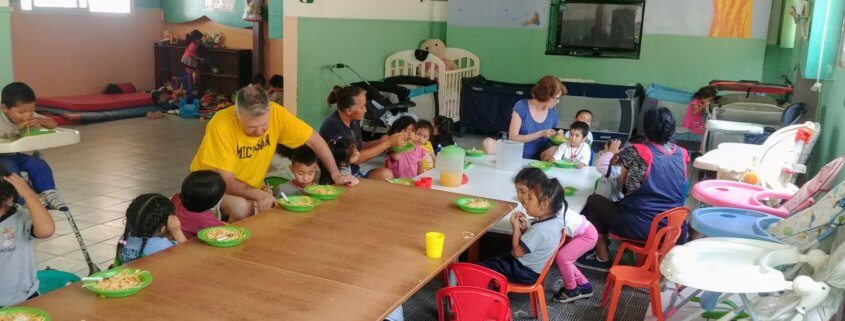


Leave a Reply
Want to join the discussion?Feel free to contribute!